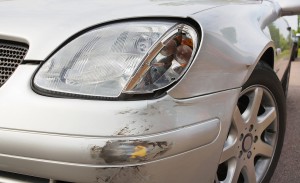 Statistics show a rise in the rate of traffic accidents even though people drive fewer miles. With this scenario, forty-seven states require at least have some kind of car insurance. A driver and a car owner must have knowledge at least about the law that requires insurance.
Statistics show a rise in the rate of traffic accidents even though people drive fewer miles. With this scenario, forty-seven states require at least have some kind of car insurance. A driver and a car owner must have knowledge at least about the law that requires insurance.
Auto insurance takes some of the pain out of an accident and pays all the big bills, including medical expenses. In all but three US states, everyone is required to carry a minimum level of liability insurance. Failure to insure is usually a criminal offense. In some states, the courts can confiscate your vehicle if you are uninsured.
Auto policy includes this coverage:
- Bodily Injury Liability-applies to injuries that you, the designated driver or policyholder, cause to someone else. You and family members listed on the policy are also covered when driving someone else’s car with their permission.
- Medical Payments or Personal Injury Protection (PIP)-pays for the treatment of injuries to the driver and passengers of the policyholder’s car. It can cover medical payments, lost wages and the cost of replacing services normally performed by someone injured in an auto accident. It may also cover funeral costs.
- Property Damage Liability-pays damage to someone else’s car, but it also includes damage to lamp posts, telephone poles, fences, buildings or other structures your car hit.
- Collision- pays for damage to your car resulting from a collision with another car, object or as a result of flipping over. It also covers damage caused by potholes.
- Comprehensive- reimburses you for loss due to theft or damage caused by something other than a collision with another car or object, such as fire, falling objects, missiles, explosion, earthquake, windstorm, hail, flood, vandalism, riot, or contact with animals such as birds or deer.
- Uninsured and Underinsured Motorist Coverage- reimburse you, a member of your family, or a designated driver if one of you is hit by an uninsured or hit-and-run driver.
If you are buying your vehicle with an auto loan, the finance company will somehow require you to carry collision and comprehensive insurance. Even when you own the vehicle outright, it’s always worth carrying enough insurance to repair it and pay all your own medical expenses should you be injured.
However, before purchasing one, consider variety of factors such as the kind of car you have, driving record and the amount of money you are willing to pay. Simply it means, look carefully at the vehicle you drive and your own financial position.


